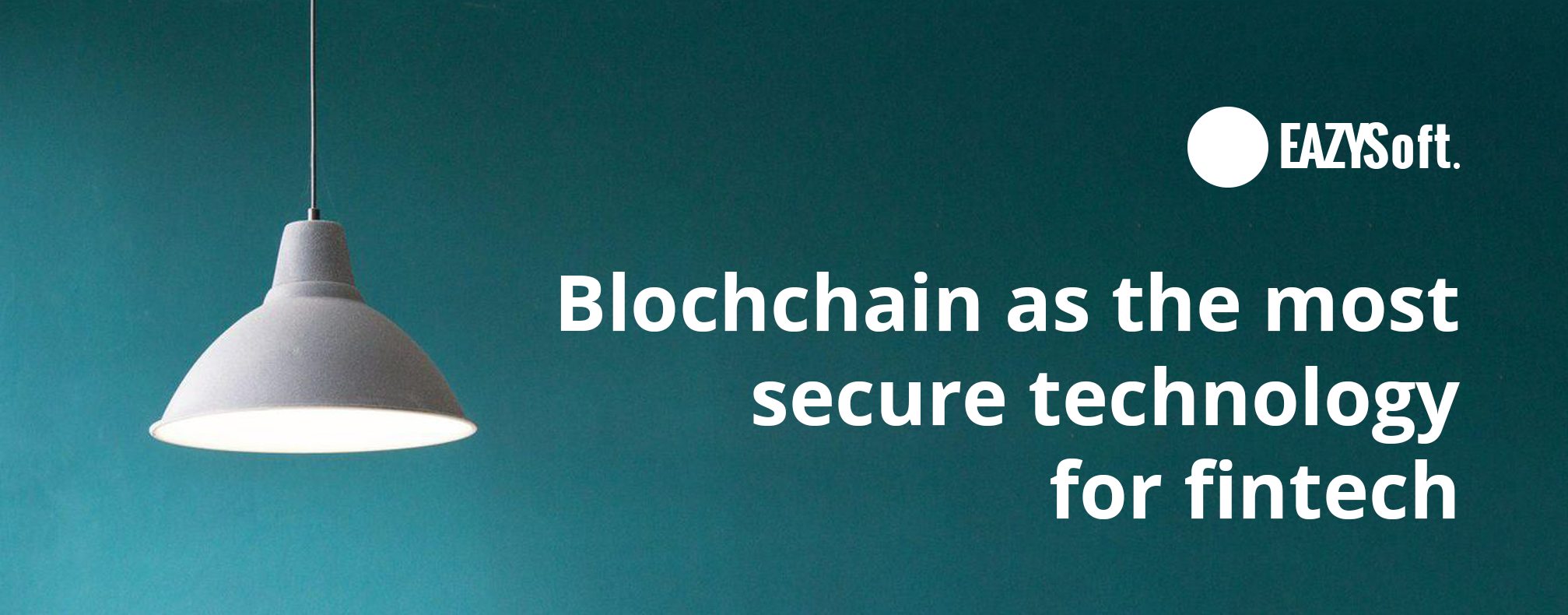
Blochchain as the most secure technology for fintech
Blockchain technology can reshape the way business works, especially in fintech industry. Its unique decentralized architecture, which records transactions on an immutable public ledger, offers solutions for many industry problems from retail banking to insurance and investment banking.
The key benefits of blockchain technology is the distributed infrastructure’s ability to share information that is secure and provide for the unalterable transfer of data– ensuring data integrity. This makes the technology an important tool in building trust among business and consumers. Both can provide and access accurate data about transactions across nearly every financial service industry.
Understanding when and how to use blockchain technology – including asset creation, asset transfer and data reconciliation – will separate the winners and losers as the financial services industry moves from exploration to application.
The blockchain market has grown at a much faster rate than anticipated. The market is expected to be worth more than $7 billion by 2022; Koyen and his team view blockchain as the most disruptive technology since the Internet. The ledger delivers transparency, and the decentralized network that supports blockchain makes it harder to perpetrate cyber attacks that can cause millions of dollars in losses. However, while some companies have successfully integrated this new architecture, the question remains as to whether fintech really needs to embrace blockchain at this early stage.
Before a transaction is recorded to the ledger, an agreement must be reached by the entire network. This means that blockchains are unhackable. For a transaction to be edited retroactively, the same consensus must be reached across the entire network. Thus, hacking is a practical impossibility.
One of the fastest growing industries of this decade, the world has welcomed the Fintech industry with open arms. Day-to-day banking, trading and investing have moved online; mobile payments are widely accepted on e-commerce platforms; online currency exchanges, equity funding, and personal finance apps have made it possible for anyone with internet to access the same financial options that were once reserved for those of a certain economic stature. Among companies in Fintech, those benefiting the most are start-ups.
Funding of Fintech start-ups has increased at a CAGR of 41 percent to more than $40 billion in cumulative investment over the last four years, according to PwC’s 2017 Global Fintech Report. The report also cites that 77 percent of its respondents expect to adopt blockchain by 2020.
Blockchains provide users and companies in Fintech a decentralized network to share secure information, and provide the unalterable transfer of data. With the invention of Smart Contracts, blockchains can ensure the obligations of both parties are met before a transaction or agreement is completed.
Smart Contracts, developed by Ethereum (ETH), are a highly programmable and multi-functional system that ensure a transparent, conflict-free way to transfer value from one party to another, without the services of a third-party or middleman. Smart Contracts exist on a blockchain, and they allow for the transfer of all types of data ― not just cryptocurrency.
Not only will the implementation of blockchain in Fintech result in increased security for the user, it will reduce costs for banks, with expected savings between $15-20 million by 2022. Blockchain can reduce a bank’s interaction with parties and intermediaries, reducing costs for maintaining and executing contracts, as well as reducing the cost of bank-to-bank transactions for users. While the benefits of savings and security lead the way, it would all be for nothing if blockchain technology isn’t adopted by the industry on a mass scale.
